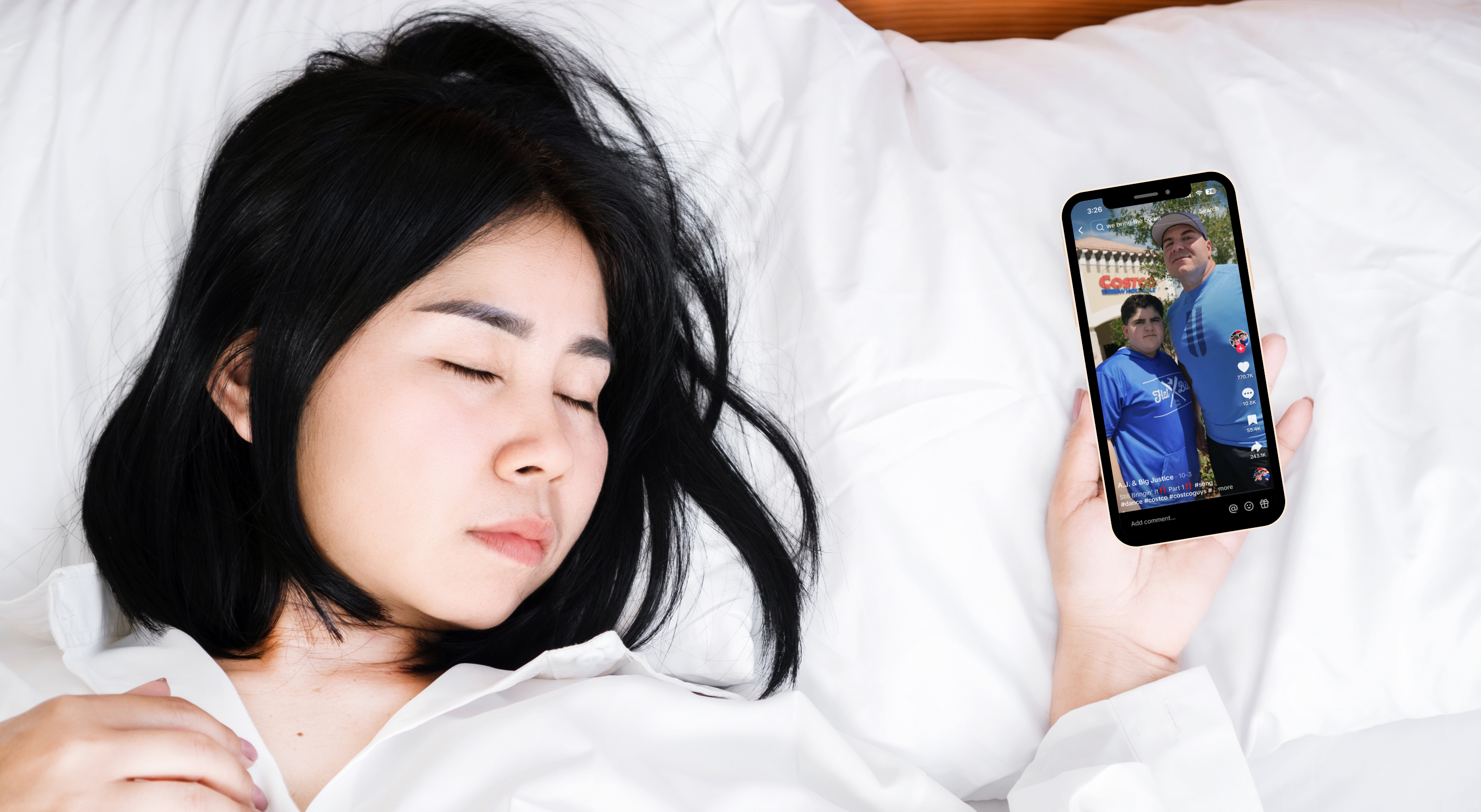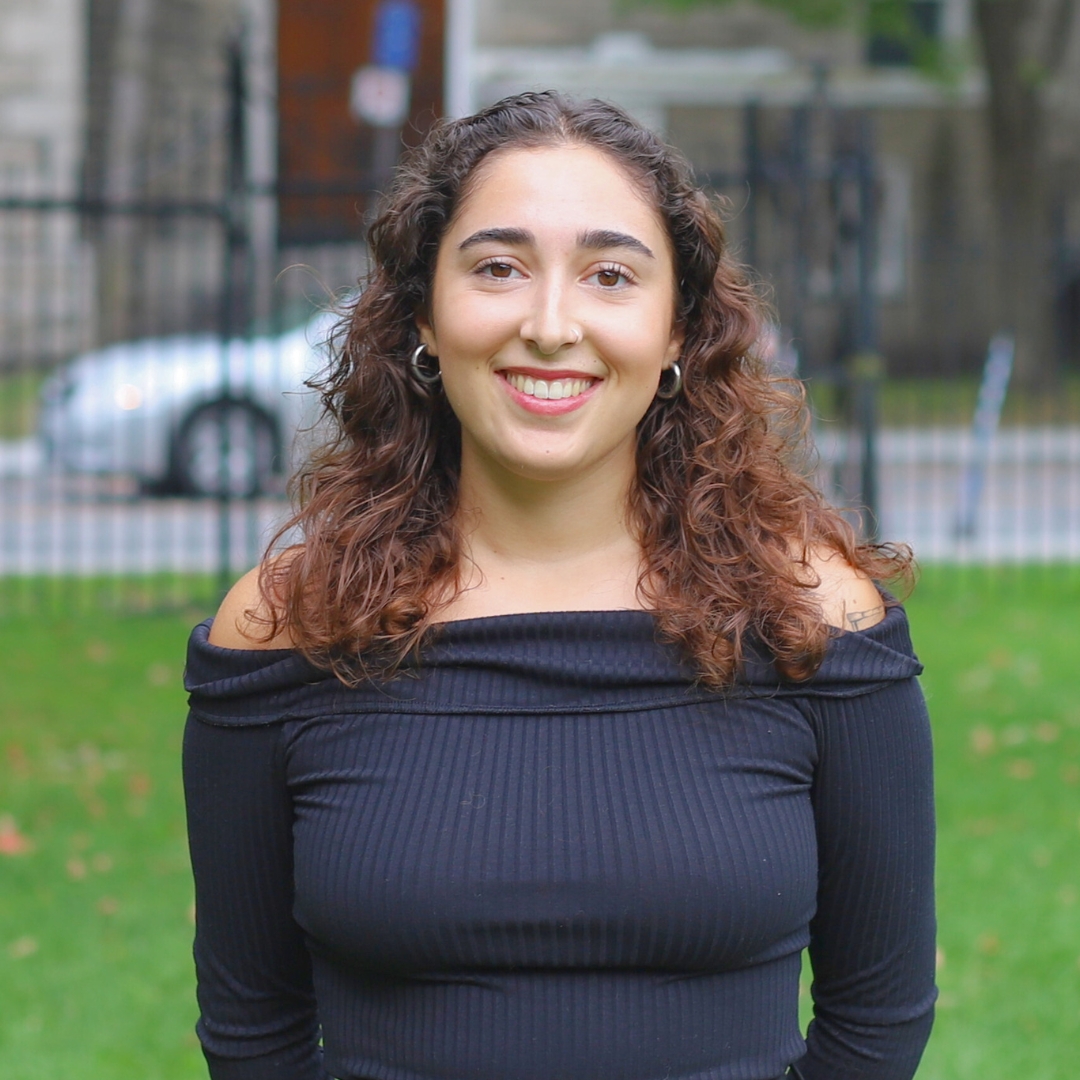Social media platforms, especially TikTok, are significant contributors to poor sleep.
If there’s one phrase you’re almost guaranteed to hear on campus, it’s, “I’m so tired.” Often, the reply is just as familiar: “Me too.” It’s strange, considering the vast amount of research; sleep studies, sleep monitoring devices and blue-light blocking apps.
So, what’s making it so hard for students to get a good night’s sleep? Could it be packed schedules, or is technology playing a bigger role than we realize?
Sleep: The Core of Wellness
There’s a wellness secret that’s often overlooked—sleep is one of the most crucial aspects of your overall health. While gyms and wellness apps may focus on workouts and nutrition, recent studies like one from Mitchell Institute and Sleep Health Foundation of Australia highlight the critical role sleep plays in maintaining physical and mental well-being.
Sleep is not just downtime; it’s a time when your body restores cardiovascular health, strengthens the immune system, regulates metabolism, and solidifies brain function.
Deep sleep, also known as slow-wave sleep (SWS), is essential for memory formation and processing for several reasons.
This process helps consolidate memories, particularly facts and knowledge. The hippocampus, a region critical for memory, reactivates experiences from the day, transferring them to the cortex for long-term storage. In deep sleep, the brain refines connections between neurons by weakening or strengthening synapses.
Synapses are critical for the brain’s ability to process and transmit information throughout the body, playing a key role in learning, memory, and overall neural function.
When sleep is disturbed, the synapses remain too stimulated. Learning new things in this state is difficult due to the reduced neuroplasticity (the brain’s ability to reorganize and adapt by forming new neural connections in response to learning, experiences, or injury).
A study published in Nature Communications explained “The reason why this happens, according to the researchers, is that during the manipulated deep sleep, the neurons’ synapses did not “rest” as they normally would during restorative sleep”.
For students, this is especially important because deep sleep is directly linked to cognitive performance. It plays a critical role in consolidating memories, helping the brain retain and process new information. When sleep is disrupted, it becomes harder to learn and adapt, impairing your ability to succeed academically.
There are also known adverse effects of sleep deprivation such as activation of the sympathetic nervous system, which can lead to a rise of blood pressure, an increase in cortisol secretion and possible immune response suppression.
What Affects Sleep?
A big part of the problem is how student life conflicts with the body’s natural rhythms. University schedules and deadlines don’t always align with students’ circadian rhythms, which naturally shift during adolescence and early adulthood. This shift often makes students more alert at night and pushes their ideal sleep time later. However, classes and social commitments force many to wake up early, leading to chronic sleep deprivation.
Beyond schedules, technology has emerged as one of the largest barriers to a good night’s rest. The exposure to artificial light from screens, especially blue light, delays the release of melatonin—the hormone that regulates sleep. This makes it harder to wind down and fall asleep, further exacerbating the natural tendency for late nights.
A study published in PubMed Central cites that “These changes promote a delayed sleep phase that is exacerbated by evening light exposure and incompatible with aspects of modern society, notably early school start times.”
Tech Design and Sleep Disruption
Social media platforms, especially TikTok, are significant contributors to poor sleep. TikTok’s addictive nature is largely due to its algorithm, which serves an endless stream of engaging, personalized content. Unlike other platforms, TikTok doesn’t require you to actively choose what to watch next. Instead, it continuously delivers content that’s tailored to your interests, making it incredibly hard to stop scrolling, especially late at night.
Research from the School of Public Health at Brown University found that the addictive nature of the app may be due to “The personalized “For You” stream created by artificial intelligence (AI) for each user has also been identified as a key contributor to TikTok addiction. TikTok differs from other social media apps because an individual’s feed is not based on deliberate choices made about the content they want to see.”
The Bigger Picture: Sleep and Student Life
For students, lack of sleep has serious consequences. Beyond feeling tired, poor sleep can lead to impaired cognitive function, reduced academic performance, and increased stress levels. Sleep disruption has also been linked to heightened anxiety, depression, and overall mental health challenges.
Zhao and Kou published in Frontiers in Psychology explain “It has been demonstrated that routine TikTok use is linked to cognitive arousal before bed, which causes poor sleep. The use of various short video applications is one of the major causes of reduced sleep quality in the college population.”
How Can We Fix This?
The key to improving sleep lies in recognizing how technology is affecting it and making conscious changes. Start by setting boundaries around screen time, especially in the hours before bed. Features like app timers or “Do Not Disturb” modes can help prevent late-night scrolling. Establishing a tech-free bedtime routine, such as reading or meditating, can signal to the brain that it’s time to wind down. Creating a screen-free environment in your bedroom can further help reduce distractions and improve sleep quality.
By making these small changes, students can regain control over their sleep, improve their academic performance, and enhance their overall well-being. Sleep may be one of the most underrated health tools out there, but it’s also one of the most powerful. With the right habits, you can find a balance between technology and the rest your body needs.






